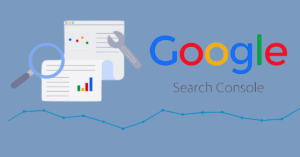SEO Analytics And Reporting: Shining a Light on Your Website’s Search Engine Visibility
The Dynamic Duo of SEO: Analytics and Reporting in Detail
Imagine your website as a bustling city in the land of search engines. SEO analytics and reporting are like two vigilant guardians, each playing a crucial role in ensuring its prosperity and visibility.

SEO Analytics: The Uncovering Eye
Think of analytics as the tireless scout, exploring every corner of your city. It gathers vital data on who visits, where they come from, what they do, and how long they stay. This includes:
- Traffic Analysis: Measuring website traffic, user sources (direct, organic search, social media, etc.), and page views.
- User Behavior Insights: Understanding how users navigate your website, bounce rates, time spent on each page, and click patterns.
- Conversion Tracking: Monitoring key actions like form submissions, purchases, and downloads.
- Keyword Ranking: Observing your website’s position in search engine results for targeted keywords.
Through this in-depth exploration, analytics paints a detailed picture of your city’s inhabitants and their behavior. It reveals which streets are bustling with activity, which are deserted, and where potential dangers lurk (broken links, slow loading times, confusing page layouts).
SEO Reporting: The Guiding Light
Now enters the wise cartographer, reporter in hand. They take the raw data gathered by analytics and transform it into a clear, actionable roadmap for improvement. This involves:
- Data Visualization: Transforming numbers into insightful graphs, charts, and reports, making the information easily digestible.
- Identifying Trends and Patterns: Recognizing patterns in user behavior, keyword performance, and website health to pinpoint areas for optimization.
- Setting Goals and Prioritizing Actions: Establishing clear goals for your website (increased traffic, higher conversions, improved rankings) and outlining specific steps to achieve them.
- Communicating Insights: Presenting the reports to stakeholders in a clear and concise manner, ensuring everyone is informed and aligned with the optimization plan.
The reporter ensures the scout’s hard work doesn’t go to waste. They take the raw data, interpret its meaning, and translate it into practical steps for improvement. This roadmap guides the city’s development, directing resources towards fixing roads, building new attractions, and enhancing the overall user experience.
Their Combined Power: Unstoppable Optimization
Just like the scout and cartographer work together to build a thriving city, so too do SEO analytics and reporting work in tandem to optimize your website. By understanding your website’s current state and charting a course for improvement, you can attract more visitors, convert them into loyal users, and ultimately conquer the ever-evolving landscape of search engines.
Remember, they are not separate entities, but two sides of the same coin. Analytics gathers the knowledge, reporting applies it. Embrace their combined power, and watch your website rise to new heights of online success!
Conquer the SEO Mountain: 5 Powerful Tools to Analyze & Report Your Way to the Top
The quest for search engine mastery can feel like scaling an impossibly steep mountain. You navigate treacherous terrain, decipher cryptic signs, and battle elusive beasts (keyword competition, anyone?). But fear not, brave adventurer! Powerful tools await to aid your journey, and this guide will equip you with the five mightiest of them all: SEO analytics and reporting tools.
These digital weapons unlock hidden insights, expose your website’s strengths and weaknesses, and guide you towards peak visibility. Forget wandering blindfolded – with actionable data by your side, you can chart a course for guaranteed SEO success. So, sharpen your focus, adventurer, and prepare to delve into the wondrous world of SEO analytics and reporting!
SEO Analytics:
- The Detective Work: Imagine yourself as a web detective, meticulously gathering clues about your website’s visibility. SEO analytics involves collecting and analyzing data on various aspects that influence search engine ranking, including:
- Organic Traffic: How many visitors are finding your website through non-paid search results?
- Keyword Rankings: Where does your website stand for specific keywords relevant to your niche?
- Backlinks: How many reputable websites link to your content, boosting your online authority?
- Website Health: Technical factors like page speed, mobile-friendliness, and structured data play a big role in SEO.
- User Engagement: Are visitors staying on your site, clicking through your pages, and converting into leads or customers?
SEO Reporting:
- Sharing the Story: Once you have gathered these clues, it’s time to weave them into a compelling narrative. SEO reporting involves compiling the analyzed data into clear, concise, and actionable reports. These reports:
- Visualize the Data: Employ charts, graphs, and tables to make complex data easily digestible for stakeholders.
- Track Progress: Monitor changes over time, identifying trends and measuring the effectiveness of your SEO efforts.
- Highlight Key Insights: Distill the data into actionable recommendations for optimizing your website and content for better search engine visibility.
- Inform Strategy: Guide future SEO activities by setting realistic goals and prioritizing tasks based on data-driven insights.
Benefits of Effective SEO Analytics And Reporting:
- Clearer Understanding: Gain a comprehensive understanding of your website’s strengths and weaknesses in the eyes of search engines.
- Data-Driven Decisions: Make informed decisions about your SEO strategy instead of relying on guesswork or outdated practices.
- Improved Performance: Optimize your website and content for higher search engine rankings, leading to increased organic traffic and conversions.
- Client/Stakeholder Communication: Effectively communicate your SEO progress and value to clients or stakeholders with clear and insightful reports.
Tools for SEO Analytics And Reporting:
Several tools can assist you in the SEO analytics and reporting process, including:
- Google Search Console: Provides valuable insights into keyword rankings, backlinks, and website health.
- Google Analytics: Tracks website traffic, user behavior, and conversion rates.
- Semrush: Offers a comprehensive suite of SEO tools for keyword research, rank tracking, backlink analysis, and more.
- Ahrefs: Another powerful SEO toolset with capabilities similar to Semrush.
- Moz: Provides insights into backlinks, keyword difficulty, and on-page SEO optimization.
Remember: Effective SEO analytics and reporting is an ongoing process. Regularly analyzing data, adjusting your strategy, and monitoring progress are key to achieving long-term success in search engine optimization
Google Search Console (GSC):

Here’s a detailed explanation of Google Search Console (GSC):
Imagine GSC as your personal advisor from Google, offering direct insights into your website’s SEO performance. It’s free to use and provides invaluable data to guide your SEO strategy. Let’s delve into its key features and benefits:
Key Features:
Keyword Rankings:
- Discover the specific keywords for which your website ranks in Google search results.
- Track your average position for each keyword.
- Identify pages that are ranking well and those that need improvement.
- Monitor changes in rankings over time to assess the impact of your SEO efforts.
Backlink Analysis:
- See a list of websites that link to yours (backlinks).
- Analyze the quality and relevance of these backlinks.
- Identify valuable backlink opportunities to strengthen your website’s authority.
Website Health Insights:
- Receive alerts about technical issues that can hinder search engine visibility, including:
- Crawl errors (when Google has trouble accessing or indexing your pages).
- Mobile-friendliness issues (compatibility with smartphones and tablets).
- Security problems (malware or hacking attempts).
- Address these issues promptly to ensure optimal website performance and user experience.
- Receive alerts about technical issues that can hinder search engine visibility, including:
Search Analytics:
- Analyze how users find your website in search results:
- View the most common search queries that lead to your pages.
- Track clicks, impressions, and average click-through rate (CTR).
- Understand user search behavior and tailor your content and SEO strategy accordingly.
- Analyze how users find your website in search results:
Benefits:
- Direct Data from the Source: GSC provides information directly from Google, the leading search engine, ensuring its accuracy and relevance.
- Keyword Performance and User Insights: Gain valuable insights into which keywords are driving traffic, how users are engaging with your content, and identify areas for improvement.
- Technical Issue Identification: Proactively address technical problems that could negatively impact your SEO and user experience.
- Completely Free and Accessible: GSC is a free tool, making it accessible to website owners of all levels, from beginners to experienced SEO professionals.
To effectively use GSC:
- Set up your account: Verify your website ownership to access its data.
- Regularly monitor reports: Stay informed about your website’s SEO performance and identify potential issues early on.
- Take action based on insights: Use the data to optimize content, improve backlinks, address technical issues, and enhance overall SEO strategy.
By effectively using GSC, you can make informed decisions to improve your website’s visibility in search results, attract more organic traffic, and reach your target audience more effectively.
Google Analytics: Your Website Traffic Microscope in Detail
Think of Google Analytics as a powerful microscope for your website, revealing the intricate details of your visitors’ behavior. It dissects traffic, analyzes user interaction, and shines a light on performance, making it essential for any website owner aiming to thrive online.
Key Features:
- Traffic Analysis: Dive deep into who’s visiting your website. Track:
- Visits, Sessions, and Users: Measure overall traffic activity and unique visitors.
- Traffic Sources: Understand where visitors come from (direct, organic search, social media, etc.).
- Page Views and Time Spent: See which pages attract most attention and for how long.
- User Behavior Insights: Go beyond numbers and unveil how users experience your website:
- Bounce Rates: Identify pages where visitors quickly leave, indicating potential engagement issues.
- Navigation Paths: Discover how users move through your website, revealing optimal and confusing flows.
- Heatmaps and Scroll Depth: Visualize where users click and how far they scroll, highlighting areas of interest and engagement.
- Conversion Tracking: Measure the success of your website’s goals:
- Form Submissions, Purchases, and Downloads: Track key actions users take, demonstrating the effectiveness of calls to action and marketing campaigns.
- Goal Funnels: See the steps users take before converting, aiding in optimizing conversion pathways.
- Multi-Channel Funnels: Understand the contribution of different traffic sources to conversions, offering valuable attribution insights.
- Goal & Segment Analysis: Tailor your analysis to specific needs:
- Goal Setting: Define custom goals aligned with your website’s objectives (e.g., lead generation, product purchases).
- Audience Segmentation: Divide your visitors into groups based on demographics, interests, behavior, or any other relevant factor, allowing for targeted insights and optimization.
Benefits:
- In-depth Visitor Understanding: Gain profound knowledge of your target audience, their needs, and how they interact with your website.
- Strategic Decision Making: Use data-driven insights to optimize user experience, improve website layout, and prioritize content creation.
- Marketing Campaign Optimization: Track the effectiveness of your marketing efforts, identify successful channels, and allocate resources efficiently.
- Conversion Goal Achievement: Measure progress towards your website’s goals, identify bottlenecks in the conversion funnel, and take corrective action.
- Continuous Improvement: Monitor performance over time, identify trends, and constantly adapt your website to enhance user engagement and achieve success.
Remember: Google Analytics is a powerful tool, but its potential lies in interpretation and action. Use the insights it provides to gain a deep understanding of your audience, improve your website, and ultimately achieve your online goals.
Semrush: Your All-in-One SEO Arsenal Explained
Imagine Semrush as your personal SEO war chest, brimming with powerful tools and ammunition to dominate search engine rankings. It’s a comprehensive suite that equips you with everything from keyword research to competitor analysis, making it a valuable weapon in any SEO strategist’s arsenal. Let’s dig deep into its key features and understand how they empower your SEO efforts:
Key Features:
Keyword Research: Uncover hidden gems in the keyword treasure trove:
- Search Volume & Trends: Discover keywords with high search volume and analyze rising or declining trends.
- Competition Analysis: Gauge the difficulty of ranking for specific keywords, helping you prioritize your efforts.
- CPC Insights: Understand the potential cost-per-click for paid advertising campaigns.
- Related Keyword Suggestions: Expand your keyword exploration, discovering valuable long-tail variations.
Rank Tracking: Keep your finger on the pulse of your website’s ranking:
- Monitor Keyword Positions: Track your website’s ranking for chosen keywords over time, across different search engines and locations.
- Competitor Rank Comparison: See how you stack up against competitors for targeted keywords, revealing areas for improvement.
- Rank Distribution Overview: Understand the overall ranking distribution of your website, identifying strengths and weaknesses.
Backlink Analysis: Build a thriving network of online friends:
- Website Backlink Profile: Analyze your website’s backlink profile, identifying strong and weak backlinks.
- Competitor Backlink Analysis: Uncover backlinks your competitors have and explore potential link-building opportunities.
- Backlink Mentions & Brand Monitoring: Track mentions of your brand online, allowing for proactive reputation management.
Technical SEO Audit: Identify and fix the cracks in your SEO foundation:
- Crawlability & Indexation Issues: Discover technical problems that hinder search engine access to your website content.
- On-Page Optimization Recommendations: Receive actionable suggestions for improving page titles, meta descriptions, and other on-page elements.
- Mobile-friendliness & Performance Analysis: Ensure your website is mobile-friendly and loads quickly, crucial for optimal user experience.
Content Gap Analysis: Fill the void in your content strategy:
- Competitor Content Overview: See what topics your competitors are covering that you’re not.
- High-performing Content Identification: Discover content that receives high traffic and engagement from your target audience.
- Content Planning Inspiration: Identify new content ideas with proven potential to attract viewers and improve your SEO standing.
Benefits:
- Comprehensive Toolset: Access a wide range of features covering various SEO aspects from keyword research to technical audits.
- Valuable Insights & Data: Gain actionable insights to inform your keyword strategy, competitor analysis, and content creation.
- Technical Problem Identification & Correction: Proactively address technical issues that negatively impact your SEO performance.
- Paid Plans with Scalability: Choose from different paid plans with varying features and data limitations to match your needs and budget.
Remember: Semrush is a powerful tool, but like any weapon, it’s most effective when wielded with skill and purpose. Use its insights to strategically plan your SEO approach, identify improvement opportunities, and watch your website climb the search engine ladder to victory.
Ahrefs: The Deep-Sea Diving Suit of SEO Analytics
Imagine Ahrefs as a high-tech diving suit for navigating the ocean of SEO data. It delves deeper than most, revealing intricate details about backlinks, competitive strategies, and content performance, empowering you to dominate the search engine seas. Let’s explore its key features and understand how they equip you for SEO exploration:
Key Features:
Backlink Analysis: Dive into the largest backlink database in the world:
- Website Backlink Profile: Explore every link pointing to your website, assessing their quality, source, and strength.
- Competitor Backlink Analysis: Discover your competitors’ backlink strategies, identifying valuable opportunities for link building.
- Disavow Tool: Eliminate harmful backlinks that can negatively impact your SEO performance.
Content Explorer: Unearth hidden treasure in the form of high-performing content:
- Content Topic Research: Discover popular content based on social shares, backlinks, and organic traffic, finding inspiration for your own strategy.
- Keyword Gap Analysis: See what topics your competitors are covering that you’re not, revealing potential content opportunities.
- Influencer Identification: Find potential partners for content collaborations and guest blogging.
Keyword Ranking & Difficulty: Chart your course with data-driven insights:
- Track Keyword Rankings: Monitor your website’s ranking for specific keywords over time, across different search engines and locations.
- Keyword Difficulty Analysis: Gauge the competition for targeted keywords, prioritizing efforts for maximum impact.
- Keyword Research Suggestions: Find related keywords with high potential, expanding your keyword universe.
On-Page SEO Analysis: Optimize your website for maximum underwater visibility:
- Page-Level Analysis: Receive actionable suggestions for improving title tags, meta descriptions, internal linking, and other on-page elements.
- Content Optimization Tips: Enhance your content with keyword optimization, readability analysis, and topic suggestions.
- Broken Link Checker: Identify and fix broken links on your website, maintaining a clean and SEO-friendly structure.
Competitor Site Audit: Uncover your competitors’ vulnerabilities and exploit them strategically:
- Technical SEO Issues: Discover technical problems affecting your competitors’ websites, potentially revealing opportunities for your own advantage.
- Content Gaps & Weaknesses: Identify areas where your competitors’ content is lacking, providing room for you to excel.
- Paid Advertising Strategies: Analyze your competitors’ paid advertising campaigns, gleaning insights for your own strategy.
Benefits:
- Unmatched Backlink Intelligence: Gain access to the most comprehensive backlink data, empowering you to build a strong backlink profile and outrank competitors.
- Content Discovery & Inspiration: Find high-performing content topics and identify gaps in your content strategy, ensuring you create content that resonates with your audience.
- In-Depth Competitor Analysis: Uncover your competitors’ strengths and weaknesses, allowing you to develop data-driven strategies for outmaneuvering them.
- Advanced SEO Optimization Tools: Access powerful features for on-page and technical SEO optimization, ensuring your website is search engine friendly and ready to climb the rankings.
Remember: Like any diving suit, Ahrefs is most effective when used with knowledge and caution. Dive deep into the data, uncover valuable insights, and use them to strategically navigate the complex world of SEO, propelling your website to new depths of success.
Moz: Your Guiding Hand in the SEO Jungle
Think of Moz as your wise SEO sensei, guiding you on your journey to the top of Google’s search engine mountain. With its blend of powerful tools and easy-to-understand insights, Moz empowers you to conquer keyword research, optimize your website, and build a strong online presence. Let’s unravel its key features and understand how they equip you for SEO success:
Key Features:
Keyword Explorer: Like a map to hidden treasure, Moz’s Keyword Explorer reveals valuable keyword opportunities:
- Keyword Difficulty Score: Gauge the competition level for specific keywords, prioritizing your efforts for maximum impact.
- Search Volume Insights: Understand how many people are searching for a particular keyword, ensuring your content reaches the right audience.
- Related Keyword Suggestions: Expand your keyword universe, discovering long-tail variations and related topics to enhance your content strategy.
Link Analysis: See who’s talking about you online:
- Backlink Profile Monitoring: Track your website’s backlinks, identifying strong and weak ones, and uncovering link building opportunities.
- Competitor Link Analysis: Spy on your rivals’ backlink strategies, learning from their successes and avoiding their pitfalls.
- Link Spam Alerts: Stay vigilant against harmful backlinks that can negatively impact your SEO performance.
Site Audit: Get a complete health check for your website:
- On-Page Optimization Suggestions: Receive actionable advice on improving page titles, meta descriptions, internal linking, and other on-page elements.
- Technical SEO Issues Identification: Discover technical problems like broken links, crawl errors, and mobile-friendliness issues, ensuring a smooth user experience.
- Overall SEO Performance Scorecard: Track your progress and stay motivated with a clear understanding of your website’s SEO health.
Local SEO Tools: Attract customers from your neighborhood:
- Local Listing Management: Optimize your website and online listings for local search engines like Google My Business.
- Citation Tracker: Monitor your local citations across various directories and identify opportunities for expansion.
- Local Rank Tracking: See where you stand in local search results for targeted keywords, allowing you to refine your local SEO strategy.
Beginner-Friendly Interface: No need for a black belt in SEO:
- Simple and intuitive interface: Navigate the platform easily, even if you’re new to SEO.
- Helpful explanations and tutorials: Gain a deeper understanding of complex SEO concepts through comprehensive resources.
- Community forum and support: Connect with other SEO enthusiasts and get your questions answered.
Benefits:
- Perfect for Beginners and Intermediates: Moz offers a sweet spot for SEO users of all levels, providing accessible tools and valuable insights tailored to your needs.
- Actionable Keyword Research: Discover high-potential keywords with data-driven insights, ensuring your content targets the right audience.
- Link Building Guidance: Master the art of link building with Moz’s tools and analysis, attracting valuable backlinks and boosting your website’s authority.
- Comprehensive Website Optimization: From on-page elements to technical issues, Moz helps you identify and address vulnerabilities, keeping your website fit for SEO success.
- Local SEO Mastery: Attract customers right around the corner with Moz’s localized tools, dominating local search results and expanding your reach.
Remember: Moz is not just a set of tools; it’s your SEO companion, guiding you on your journey towards online visibility. Use its insights to make informed decisions, implement strategic SEO practices, and watch your website ascend the search engine mountain, one step at a time.
In-Depth Dive into Top 10 AI SEO Tools For SEO Analytics And Reporting:
1. Surfer SEO:
Think of it as: Your AI content and SEO coach. Key Features:
- Content Outlines & Blog Posts: Surfer generates keyword-driven outlines and full blog posts based on competitor analysis and AI insights.
- Real-Time Optimization: Get instant feedback on your content, with suggestions for keyword density, headings, internal links, and more.
- Top Page Analysis: See what competitors are doing right and identify gaps in your content strategy.
- Keyword & Backlink Analysis: Find high-potential keywords and analyze your backlink profile.
Benefits:
- Saves time and effort in content creation.
- Ensures your content is aligned with SEO best practices.
- Helps you outrank competitors with data-driven insights.
- Provides a comprehensive view of your SEO performance.
2. MarketMuse:
Think of it as: Your content planning and optimization guru. Key Features:
- Detailed Content Briefs: Create in-depth briefs for writers, covering relevant topics, keywords, and competitor analysis.
- Keyword Relevance & Opportunities: Identify the most relevant keywords for your target audience and content format.
- Competitor Content Analysis: See how your content stacks up against top competitors for specific keywords.
- Content Quality Scores: Receive a score for your content’s depth, authority, and relevance, guiding improvement.
- Strategic Content Calendar: Build an effective content calendar based on data-driven insights.
Benefits:
- Improves content planning and quality assurance.
- Helps you target the right keywords for maximum impact.
- Provides actionable insights for outranking competitors.
- Optimizes your content for better search engine visibility.
3. Frase:
Think of it as: Your SEO-friendly content architect. Key Features:
- SEO-Optimized Outlines: Generate content outlines with specific keywords and semantic elements integrated.
- Top Page Analysis: Identify key elements and topics used by top-ranking pages for your target keywords.
- Semantic Gap Analysis: Find gaps in your content compared to competitors, ensuring comprehensive coverage.
- Readability & Engagement Suggestions: Improve your content’s readability and audience engagement.
Benefits:
- Simplifies content planning and organization.
- Ensures your content covers all relevant topics.
- Enhances content readability and user experience.
- Helps you create content that’s both informative and engaging.
4. NeuronWriter:
Think of it as: Your AI-powered copywriting assistant. Key Features:
- SEO-Friendly Headlines & Meta Descriptions: Create attention-grabbing headlines and meta descriptions optimized for search engines.
- Multiple Writing Styles: Generate content in different tones and voices to match your target audience.
- Content Flow & Structure Suggestions: Optimize your content structure for clarity and effectiveness.
Benefits:
- Saves time on writing headlines and descriptions.
- Creates engaging content with varied writing styles.
- Improves content flow and readability.
- Makes your content more impactful and relevant.
5. Jasper (Formerly Jarvis):
Think of it as: Your all-in-one content creation powerhouse. Key Features:
- SEO-Optimized Long-Form Content: Write blog posts, articles, and other long-form content with SEO best practices in mind.
- Creative Text Formats: Generate different content types like product descriptions, social media captions, and more.
- Content Optimization Suggestions: Improve existing content with AI-powered suggestions for clarity and keyword integration.
Benefits:
- Creates diverse and engaging content across various formats.
- Optimizes your content for better search engine performance.
- Provides inspiration and helps overcome writer’s block.
- Streamlines content creation process for multiple formats.
6. Keyword Insights:
Think of it as: Your AI-powered keyword treasure chest. Key Features:
- Long-Tail Keyword Discovery: Uncover hidden gems with high potential – long-tail keywords often missed by traditional research.
- Keyword Difficulty Analysis: Understand the competition level for each keyword, helping you prioritize your efforts.
- Search Intent Analysis: Discover what users are actually looking for when they search for specific keywords, ensuring your content aligns with their needs.
- User Question Identification: Find out what questions users are asking about your target topics, allowing you to create content that answers their concerns.
Benefits:
- Expands your keyword research beyond obvious choices.
- Helps you target keywords with the right difficulty level.
- Ensures your content is relevant to user search intent.
- Provides valuable insights for content creation and optimization.
7. WriterZen:
Think of it as: Your AI-powered content editor and polisher. Key Features:
- SEO-Optimized Content Outlines & Paragraphs: Generate outlines and write paragraphs optimized for specific keywords and readability.
- Readability & Engagement Analysis: Get insights into your content’s readability score and suggestions for improvement.
- Clarity & Conciseness Optimization: Ensure your content is clear, concise, and impactful.
Benefits:
- Simplifies content creation with ready-made outlines and paragraphs.
- Improves your content’s readability and user engagement.
- Ensures your content is clear, concise, and avoids unnecessary fluff.
- Makes your content more impactful and easier to understand.
8. Aiseo.ai:
Think of it as: Your AI-powered on-page SEO inspector. Key Features:
- Website Content Analysis: Analyze your website content for SEO best practices, including keyword usage, headings, and internal linking.
- On-Page Optimization Suggestions: Receive actionable recommendations for improving your on-page SEO.
- Technical SEO Issue Identification: Identify technical issues like broken links, slow loading times, and mobile-friendliness problems.
Benefits:
- Simplifies on-page SEO optimization by highlighting areas for improvement.
- Provides clear and actionable steps to optimize your website content.
- Identifies technical issues that can negatively impact your SEO performance.
- Helps you ensure your website is technically sound and user-friendly.
9. Market Brew:
Think of it as: Your AI-powered market trend and content radar. Key Features:
- Market Trend Analysis: Stay ahead of the curve by identifying emerging trends relevant to your target audience.
- Content Idea Generation: Generate fresh content ideas based on trending topics and user interests.
- Existing Content Performance Insights: Track the performance of your existing content and identify areas for improvement.
Benefits:
- Helps you stay informed about relevant market trends.
- Provides inspiration for fresh and engaging content ideas.
- Gives you insights into how your existing content is performing.
- Allows you to adapt your content strategy to changing trends and user preferences.
10. Diib:
Think of it as: Your AI-powered SEO progress tracker and auditor. Key Features:
- Comprehensive SEO Audit: Get a detailed analysis of your website’s on-page and off-page SEO performance.
- Actionable Improvement Plans: Receive personalized recommendations for improving your SEO over time.
- Progress Tracking & Reporting: Monitor your SEO progress and measure the effectiveness of your efforts.
Benefits:
- Provides a holistic view of your SEO performance.
- Offers clear and actionable steps for improvement.
- Helps you track your progress and stay motivated.
- Makes SEO reporting and analysis easier and more efficient.
Now you have a deeper understanding of all 10 AI SEO tools! Remember, the best tool for you depends on your specific needs and budget. Consider trying out a few different tools to see which ones work best for you.
Conclusion:
Embarking on a successful SEO journey requires precise navigation through the data-driven landscape. By wielding the right SEO analytics and reporting tools, you can unlock hidden insights, optimize your website with surgical precision, and climb to the top of search engine rankings. Whether you’re a seasoned SEO veteran or just starting out, these powerful tools have the potential to revolutionize your online strategy and propel your website to new heights. So, choose your weapon, dive deep into the data, and become the master of your search engine destiny.
FAQs on SEO Analytics And Reporting:
- What are the best SEO analytics and reporting tools? Google Search Console, Google Analytics, Semrush, Ahrefs, and Moz are all excellent choices, each with their own strengths and target audiences. Consider your budget, skill level, and specific needs when making your decision.
- What do SEO analytics and reporting tools do? These tools track website traffic, analyze user behavior, measure keyword rankings, identify backlinks, and provide valuable insights to optimize your website for search engines.
- How can I improve my SEO reporting? Focus on actionable insights, clear data visualization, and tailoring your reports to specific audiences. Remember, the numbers are important, but the story they tell is what truly matters.
- What are the key metrics to track in SEO? Organic traffic, keyword rankings, website bounce rate, average session duration, and conversion rate are all important metrics to monitor your SEO performance.
- How often should I run SEO reports? Frequency depends on your website’s size and the pace of your SEO campaign. Generally, weekly or monthly reports are a good starting point.
- How can I use SEO analytics and reporting to build backlinks? Analyze your competitors’ backlinks, identify high-quality websites in your niche, and create content that naturally attracts links.
- What is the difference between on-page and off-page SEO? On-page SEO involves optimizing your website content and structure, while off-page SEO focuses on building backlinks and online authority.
- How can I optimize my website for local SEO? Claim and optimize your Google My Business listing, use localized keywords throughout your website, and build citations from local directories.
- What are some common SEO mistakes to avoid? Keyword stuffing, neglecting mobile-friendliness, ignoring technical SEO issues, and not creating high-quality content are all common pitfalls to steer clear of.
- How much does SEO cost? The cost of SEO can vary greatly depending on your goals, resources, and chosen tools. Consider a mix of free and paid tools to fit your budget and optimize your website for long-term success.




